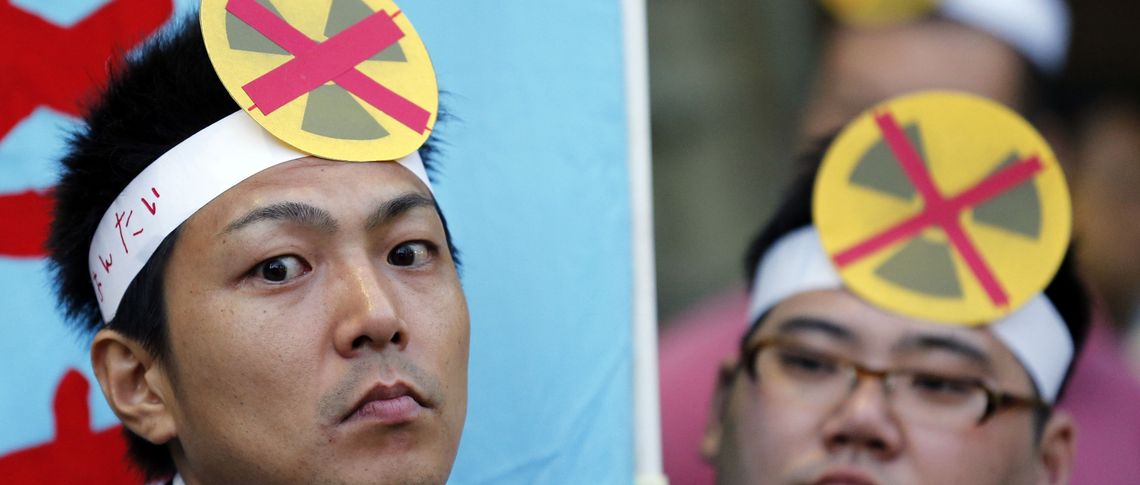Humanity is currently facing multiple crises, ranging from the ongoing Covid-19 pandemic to the escalating challenge posed by climate change. The recovery from the economic recession caused by the pandemic led to a sharp increase in energy prices and, while the whole world was watching, Russia launched a military invasion of Ukraine. Ensuing economic sanctions against Russia by the United States and the European Union, as well as the reduction of gas imports, have intensified the energy crisis.
Japanese Prime Minister Fumio Kishida has taken advantage of the public anxiety fuelled by these crises to announce a return to nuclear power. While it is still unclear what this would entail, there has been no widespread criticism of his policies among the general public. However, looking at the controversies connected to nuclear power in Japan since the nuclear disaster in Fukushima in 2011, it is hard to believe that the country would move towards nuclear energy again.
Germany’s positive example
On 24 August, Prime Minister Kishida made a statement in the second session of the GX Conference on Green Transformation, an event that he personally organised, in which he explained that, in addition to resuming the operation of existing nuclear power plants, ‘every option is on the table’. This would include the idea to develop state-of-the-art reactors — a proposal that was not in the original Sixth Strategic Energy Plan from October 2021.
Lemke emphasised that ‘it is irresponsible to treat high-risk nuclear power plants like coffee makers that you refill with water, replace with new coffee beans and filters, and turn on again’.
On the contrary, Germany, which is facing an energy crisis due to Russia’s invasion of Ukraine, has maintained its course in abandoning nuclear power. Germany’s Environment Minister Steffi Lemke held a speech on 22 September in the German parliament where she outlined three reasons why Germany will not halt the phase-out of nuclear plants. First, their use is risky and Chernobyl, Fukushima and other disasters have demonstrated the dangers involved; second, nuclear power plants are expensive and produce highly toxic legacies for future generations to deal with; and third, they can become war targets, as Russia has proven in Ukraine. Lemke emphasised that ‘it is irresponsible to treat high-risk nuclear power plants like coffee makers that you refill with water, replace with new coffee beans and filters, and turn on again’, warning those who are wavering in the face of the energy crisis of the consequences of returning to nuclear power.
Japan, which has experienced one of the worst nuclear accidents in world history, is now seemingly returning to a pro-nuclear stance and without remorse. While Germany, on the other hand, has decided, based on an ethical assessment, to abolish nuclear power plants in view of past accidents. The country has been steadily proceeding with the deactivation of said plants and is leading the world in a major shift towards renewable energy.
Investing in batteries instead of powerplants
There is no rational reason for supporting nuclear power. Nuclear power plants are not safe from earthquakes and tsunamis; they are endangering residents; and there is currently no plan to safely store existing nuclear waste — not to mention the waste that will be produced if reactors are not promptly decommissioned but rather restarted.
More importantly, nuclear power plants do not help with the often-cited power shortages. Power shortages are problems related to excess or shortage of supply and demand during peak times of maximum demand — so restarting baseload nuclear power plants will not help. By simply lowering or shifting peak demand by 0.5 per cent in a year, maximum demand could drop by about 10 per cent (5 million kW in the service area of Tokyo Power Electric Company, TEPCO).
Japan’s nuclear power plants are already quite old and will face mass decommissioning in the near future.
The most effective way to achieve this is through energy-saving measures and the usage of storage batteries. The government should expedite the expansion of demand-side response systems and demand-side storage batteries.
Climate change countermeasures must be mid- to long-term or permanent, then the proper course of action is to switch to energy conservation and renewable energy. Japan’s nuclear power plants are already quite old and will face mass decommissioning in the near future. And even if new nuclear power plants are to be built (as is apparent from the situation on the ground in Europe and the United States) the high costs and construction delays will make it almost impossible to rely on them for providing us with energy.
Furthermore, nuclear power plants are themselves vulnerable to climate change. High temperatures, storms and flood debris can force them to shut down unexpectedly for long periods of time, as is currently happening in France.
A non-nuclear future is possible
At the moment, there is a lot of excitement about Small Modular Reactors (SMRs) and next-generation reactors globally. However, this enthusiasm is groundless. While even existing large-scale nuclear power plants that have been put into use are suffering from high costs and construction delays in the United Kingdom, France, Finland and other countries, SMRs and next-generation reactors, will bring even higher costs. Since the reactor types are different and there is little demand for them, cost reductions due to mass production cannot be expected. Furthermore, they also generate nuclear waste, which is an integral part of nuclear power generation — and one of its most fundamental problems. Since a large number of SMRs are expected to be positioned in one place, there is the possibility of a chain reaction meltdown like the one at Fukushima No. 1 Nuclear Power Plant, with its four reactors. In other words, small nuclear power plants are clearly wasteful investments and their development should be halted immediately.
In the short term, power saving and electricity conservation and peak shifting through the use of storage batteries are effective measures to deal with electricity.
Especially since last July when scientists reached the consensus that it is economically feasible to achieve 100 per cent of energy consumption through renewable energy worldwide by the year 2050. While traditionally this goal has been considered in the long-term, there is a scientific consensus that it can be achieved unexpectedly quickly and at a good cost. This should be the focus rather than the construction of new nuclear power plants. In the short term, power saving and electricity conservation and peak shifting through the use of storage batteries, whose cost is rapidly declining, are effective measures to deal with electricity.
Last but not least, if solar energy – which is inexhaustible and plentiful and emits no greenhouse gases or radioactivity – can be locally and domestically produced for consumption, then it is no longer necessary to develop new nuclear power plants, let alone restart existing ones. Japan, too, should make every effort to achieve 100 per cent renewable energy in the near future.






